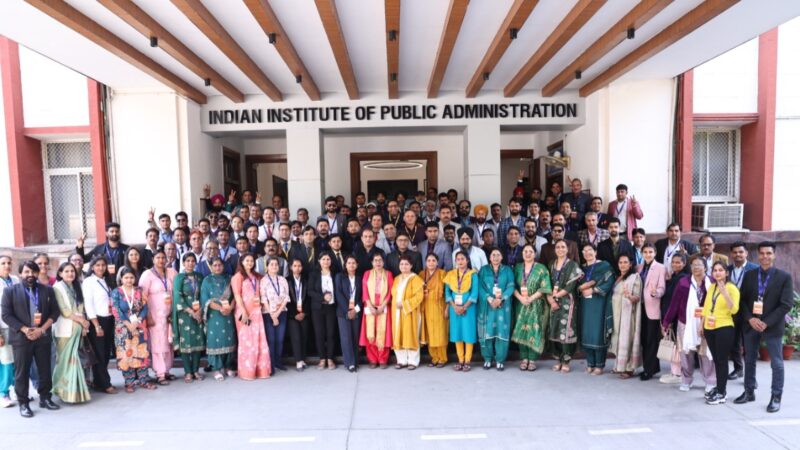DE-CODING KERALA MONITORING POLICY
Under the Consumer Protection (Direct Selling) Rules, 2021: Kerala is moving towards the setting of Monitoring Mechanism
DR. Thomas Joseph Thoomkuzhy
Subject Expert, Monitoring Authority, Govt. of Kerala & Associate Professor, Gulati Institute of Finance and Taxation (GIFT)
The enactment of the consumer protection act, of 2019 and the rules framed under (i) consumer protection (direct selling) rules 2021 and (ii) the consumer protection (e-commerce) rules 2020 had widened the scope of trade encompassing newer formats namely, e-commerce and direct selling of all formats. This served much clarity in the field level operation and ensured greater protection of the consumers doing trade through these platforms by ensuring product quality, product warranty, product refund, and product liability. The enactment also provides a strong impetus for the growth of the business of direct selling. The repealing of the guideline makes it clear that the ambiguity surrounding direct selling ventures is being removed.
The rules have explicitly mentioned that transparency should be maintained in communicating prices to the final consumers including the break-up of all the prices. However, direct selling is essentially selling the products directly to consumers by bypassing the middlemen, wholesalers, and retailers, such that the end parties are benefitted.
It has been stipulated in Rule 11 of the Consumer protection (Direct selling) Rules 2021that every State Government shall set up a mechanism to monitor or supervise the activities of direct sellers and direct selling entity. Accordingly, the Department of Consumer Affairs , Govt. of Kerala had notified the draft rules for supervising/ monitoring the activities of direct sellers and direct selling entity with an intention to strengthen the existing regulatory mechanism on direct selling, for preventing fraud and protecting the legitimate rights and interests of consumers.
According to this draft notification, the Monitoring Authority shall consist of:
i. The Special Secretary/Principal Secretary – Department of Consumer Affairs as the
Chairman,
ii. Commissioner Civil supplies and Consumer affairs as the Nodal Officer
iii. & Convener and the following members:
iv. The Secretary to Govt., Finance Dept. or any other Officer nominated by him not below
the rank of Deputy Secretary
v. The Secretary to Govt., Law Dept. or any other Officer nominated by him not below the
rank of Deputy Secretary
vi. The Secretary to Govt., Taxes Dept. or any other Officer nominated by him not below the
rank of Deputy Secretary
vii. The Controller of Legal Metrology or any other Officer nominated by him not below the
rank of Deputy Secretary.
viii. The Food Safety Commissioner or any other Officer nominated by him not below the rank
of Deputy Secretary.
ix. Commissioner, CGST Department , Kerala;
x. Commissioner, SGST Department; Kerala
xi. ADGP rank officer from the Police Department dealing with Economic offences;
xii. One Subject Expert, duly nominated by the Government.
It is also stipulated in the said mechanism that no Direct Selling Entity or such other person shall engage in a Direct Selling Business in the State of Kerala
unless such Entity has enrolled with the Monitoring Authority by filing an application online in the given format.
As per the terms of this mechanism, every Direct selling entities are required to make full disclosure of memorandum, articles of association, permanent account number, tax deduction, and collection account number, goods and services tax registration, returns, audit report, trademark certificate balance sheet, register of direct sellers, license certificate and such other certificates, that are required by the government from time to time.
The entities are also required to maintain a well-updated website furnishing with all relevant information with respect to the name of the entity, addresses, branches, contact information, ticket number for lodging of complaints, information on the return, exchange, necessary warranty and guarantee details, delivery mechanism, modes of payment and grievance redressal mechanism. The entities are also required to maintain a list of those direct sellers who have been delisted from company records and publish them on the website, for the information of the general public
The Author opined that the new rules provide clear-cut definition of the terms used in common direct selling terminology namely, cooling-off period, direct seller, direct selling entity, money circulation scheme, mis-selling, prospect, pyramid scheme, saleable, sensitive personal data, etc The rule doesn’t make a distinction between the various formats of direct selling, and uses only a comprehensive term, encompassing “all models of direct selling” under 2(b). However, the Consumer Protection Act, 2019 provides for the definition of direct selling under sec.2(13) as, “marketing, distribution, and sale of goods or provision of services through a network of sellers, other than through a permanent retail location”.
Though the earlier guidelines have mentioned the income-generating opportunity of direct selling enterprises as a remuneration plan, the new enactment does not explicitly mention the remuneration or compensation but it mentions that any amount of commission, bonuses, or any other incentives should be of the products or services of which the company owns a distinct trademark, service mark, or any other identification mark. Such a categorization is distinct from the earlier enactments, as it provides a vital basis for classification for the genuine direct selling enterprises from the fake enterprises. Section 5(e) of the consumer protection (direct selling) rules, 2021, signifies the relevance of a valid product or service based on which sale can be initiated, and demolishes the ambiguity surrounding the operation of direct selling entities.
The rule also lays down the terms of its relation with direct sellers. The basis of every relation between a direct selling entity and a direct seller is through a written contract that authorizes the direct selling entity to sell or offer to sell on behalf of the direct selling company. This also makes the direct selling entities accountable to handle the complaints, grievances arising out of the goods and services sold through direct sellers.
The Author hopes that these mechanisms would serve as the necessary impetus paving the way for rules specific to direct selling and e-commerce businesses in Kerala .According to him, the retail sector is an ever-evolving phenomenon, wherein newer formats of trade take place with the changes in consumer behaviour, information technology, changes in the foreign investment policy, and legal environment. The era of information technology has facilitated greater transparency, thereby rendering increased accountability and ensuring consumer protection as a key to every business enterprise. The enactment has therefore ensured that India has transformed itself from caveat emptor to caveat venditor in the business of direct selling through a series of legislation.
Conclusion
The enunciation of regularization of direct selling operation by setting –up an effective monitoring mechanism by the Government of Kerala has in one way catered to the demand of the direct selling community at large by ensuring a separate legal status to the direct selling industry. The convergence of physical and digital space has transcended traditional boundaries of exchanges, paving way for newer formats to evolve. the dynamic nature of trade requisites timely and efficient monitoring of the direct selling operation in the state of Kerala. Hence, the requirement for setting up of a compliance mechanism can help in fostering the growth of genuine direct selling ventures and inhibit the illegal counterparts.







